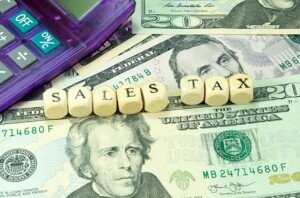7 Consequences of Failing to Pay New York State Sales Tax
New York takes sales tax liability seriously. It devotes significant resources to ensuring that businesses properly track, collect, and pay sales tax to the government. 
- Collection action against income and assets. Through the use of liens, levies, and income execution, the tax department can go after bank accounts, real or personal property, wages, and other assets to collect taxes owed.
- Imposition of penalties and interest. Delinquent taxpayers can be subject to penalties and interest of as much as 14.5%.
- Closure of the business. In addition to revoking a business’s sales tax license, the state can shut down a business for failure to pay sales tax.
- Personal liability. Sales taxes are “trust taxes.” That means, under the right circumstances, certain individuals can be held personally liable for the business’s outstanding sales tax debts. These “responsible persons” can include owners, operators, and even investors or employees if they meet the requirements. In the case of a limited liability company (LLC), there are more risks of personal liability because each and every LLC member has 100% personal responsibility for the LLC’s sales tax liability regardless of the member’s involvement with the business’s affairs, or lack thereof, with some exceptions.
- Driver’s license suspension. The State can suspend a New York Driver’s License if the driver owes $10,000 or more in tax, penalties, and interest and there is no collection resolution in place (such as an Installment Payment Agreement, Income Execution, or Offer-in-Compromise).
- Criminal conviction. New York aggressively enforces its tax laws, including pursuing certain sales tax cases criminally.
- Bad press. When the government arrests a business owner for failing to pay taxes, it likes to broadcast that through the issuance of press releases. The goal is to inform the public and to deter others from following suit. Of course, even if the business owner is able to avoid jail, the bad publicity will continue to hurt the business.
Sales tax rules are complicated and carry significant risks when businesses get them wrong. The state does offer relief in the form of the Voluntary Disclosure and Compliance Program. The State will not impose penalties or bring criminal charges against eligible taxpayers with a history of noncompliance who come forward and pay their outstanding tax liabilities. As an added incentive, qualified taxpayers are also eligible for a limited look-back period.
Business owners should contact a qualified tax professional to discuss compliance with sales tax rules and how to resolve a tax dispute. If you have a sales tax concern, contact us for a consultation.


